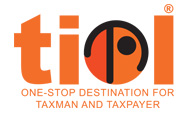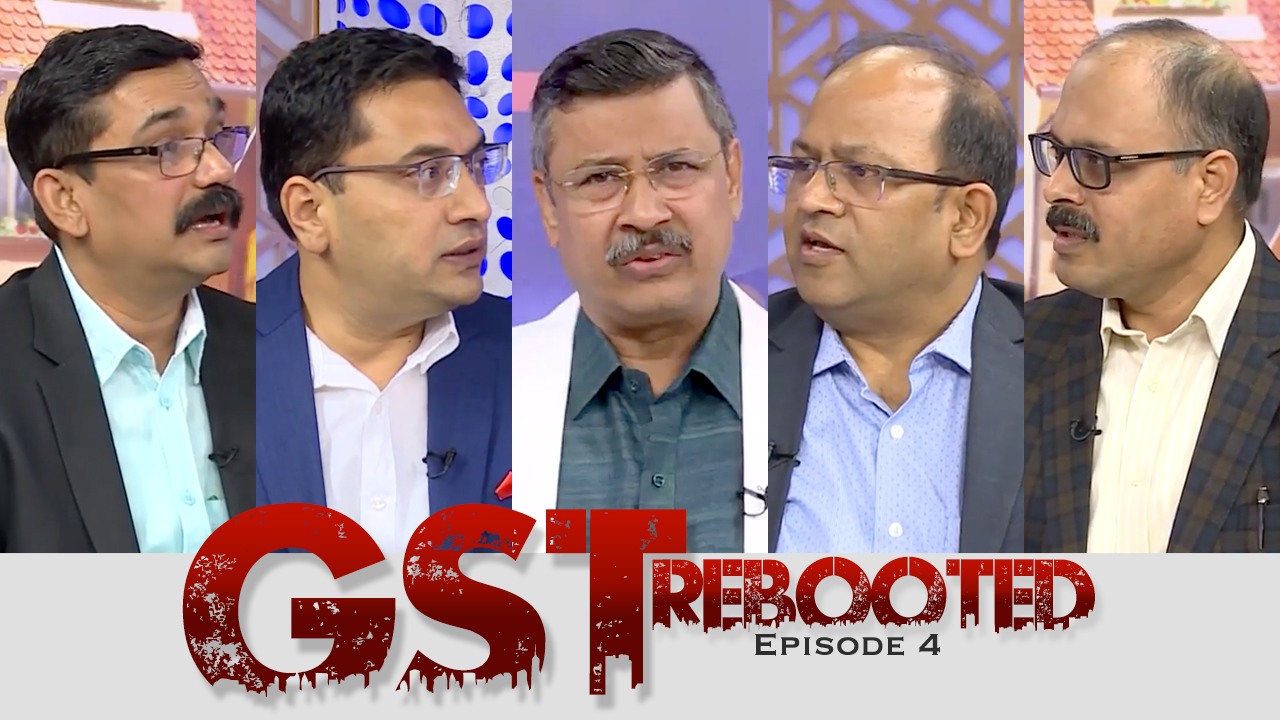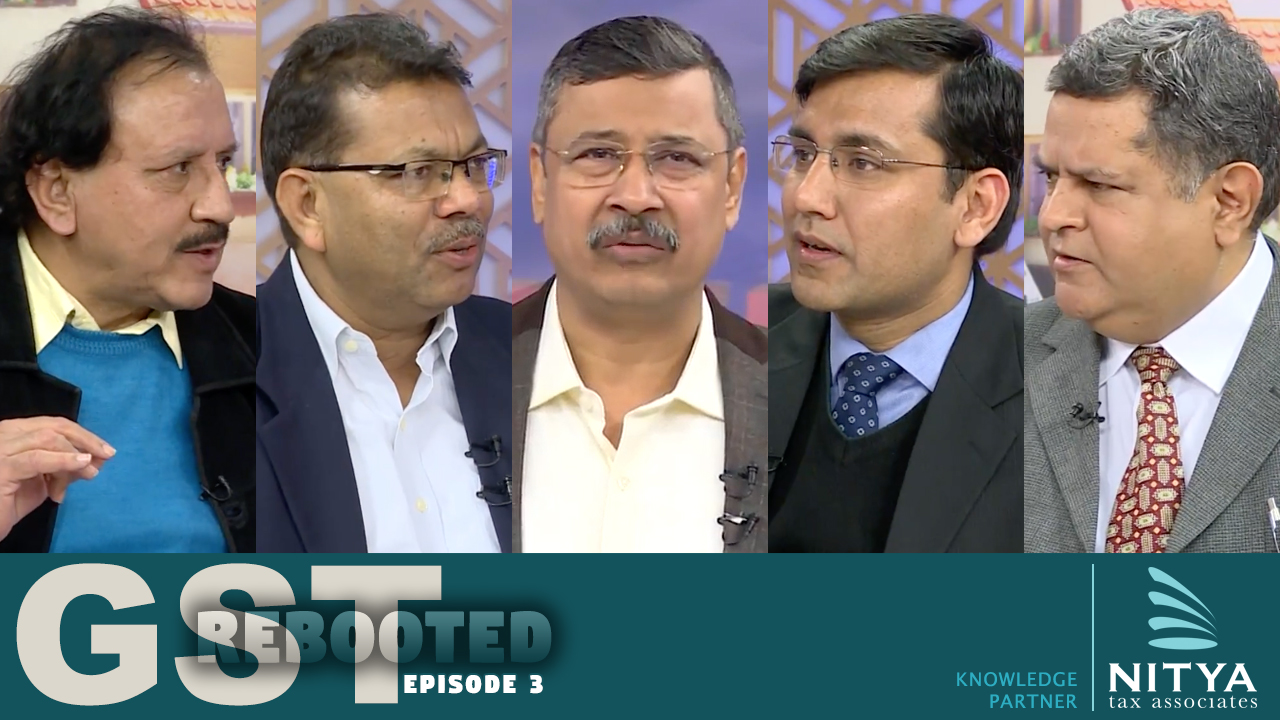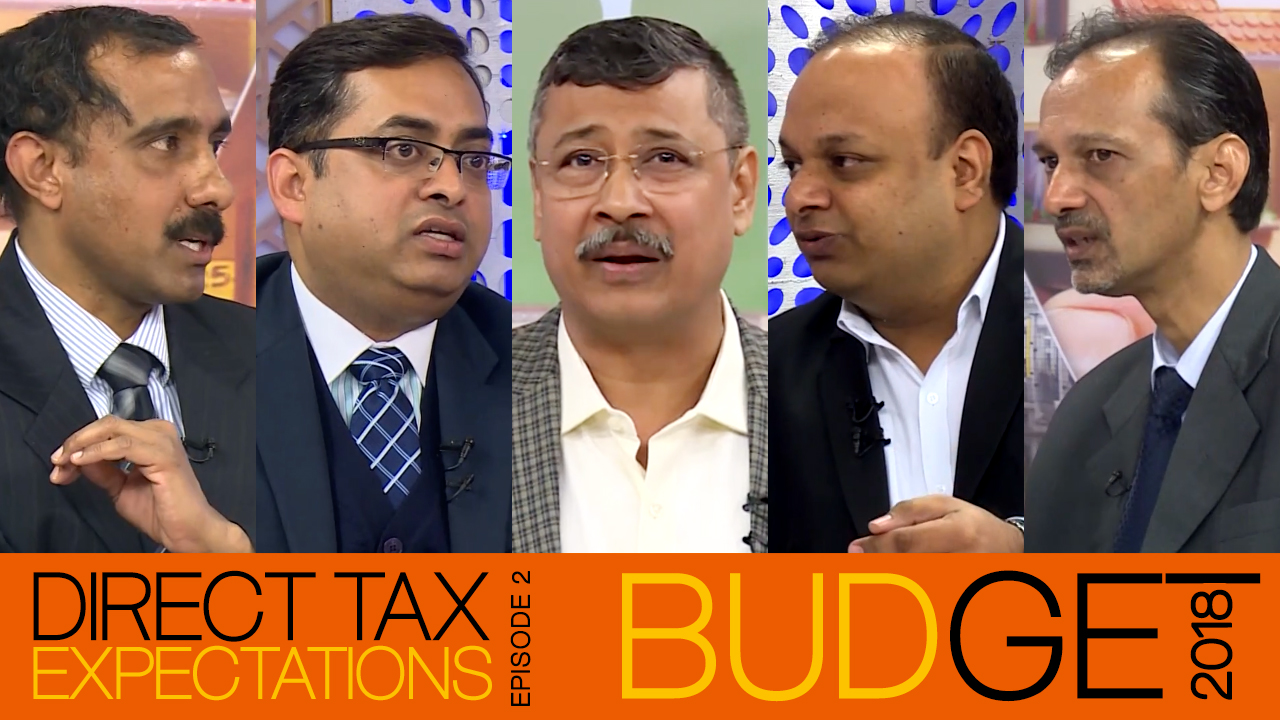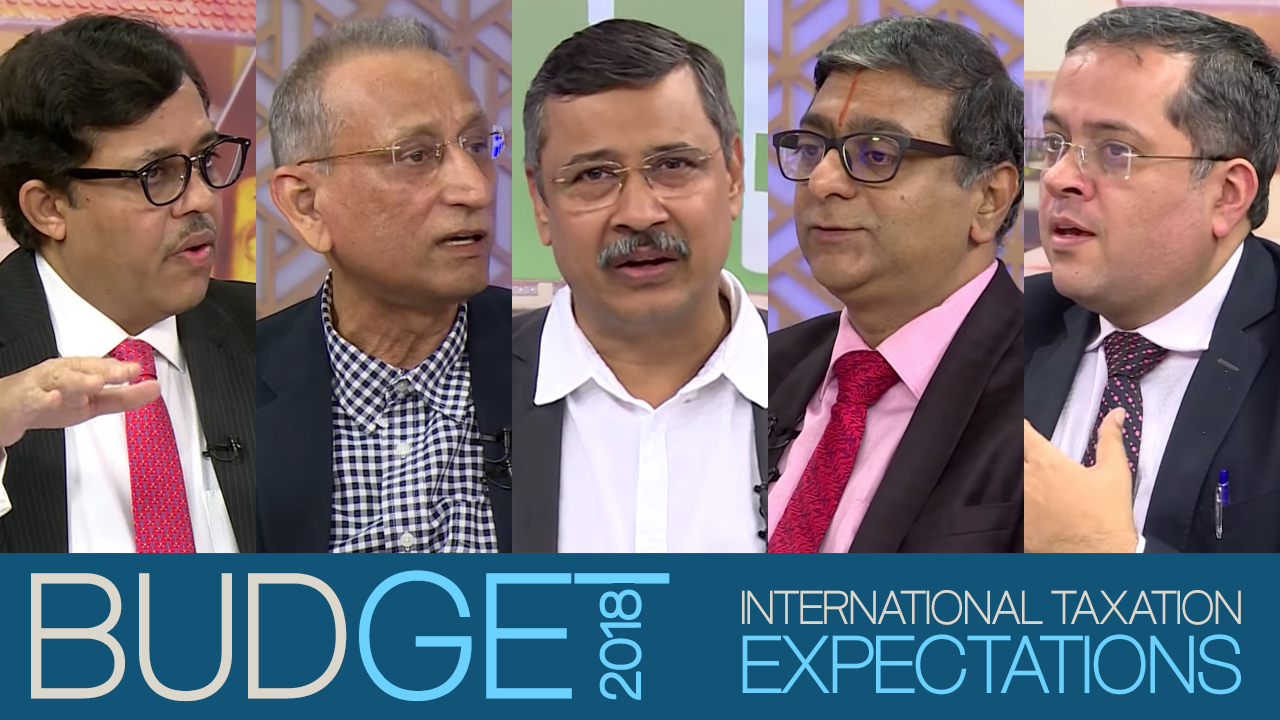|
SERVICE TAX SECTION
CCE, C & ST Vs Tops Detectives and Security Services Ltd
ST - Assessee had during period in question not discharged the service tax liability on the amount of consideration received by them from their clients; they have not filed the returns in time but subsequently had filed returns on belatedly on payment of fees for belatedly filing the returns - The reasonable/justifiable cause which has been accepted by first appellate authority i.e., non-receipt of payment and written off bad debts cannot be a reasonable cause for setting aside the penalties imposed under Section 76 of Finance Act, 1994 and to that extent, impugned order needs to be set aside and appeal of Revenue needs to be allowed - Matter is remitted back to lower authorities to arrive at the correct quantification of penalty as per the provisions of Section 76 of Finance Act, 1994 - As regards the other issue of penalty under Section 77, since the penalty imposed under Section 76 is upheld the penalty imposed under Section 77 also needs to be upheld - CENVAT credit was availed of service tax paid by Telephone Service providers and the courier services and the address is of assessee at Belgaum - In view of this, finding of first appellate authority that assessee is eligible to avail CENVAT credit needs to be accepted and to that extent, appeal of Revenue on this point is rejected - Consequently, interest liability and penalty on this amount is also set aside: CESTAT - Appeal partly allowed: BANGALORE CESTAT
2018-TIOL-298-CESTAT-DEL
Hindustan Steelworks Construction Ltd Vs CCE
ST - Assessee engaged in construction activities - Dispute relates to their tax liability under "Commercial or Industrial Construction Service" with reference to the contract executed for NTPC - Based on inquiry conducted by officers of DGCEI in August, 2006, proceedings were initiated against assessee for non-payment of service tax for taxable activities undertaken by them - Original Authority also imposed penalty under Section 76, 77 and 78 of the Act on the assessee - The tax liability of assessee is not being contested - However, their eligibility for abatement under notfn 1/2006-ST is claimed - In similar set of facts in assessee's own case, Tribunal allowed such abatement - Hence, assessee is eligible for payment of service tax after adjusting said abatement - Accordingly, tax liability requires re-calculation by Original Authority - Regarding penalty, tender proceedings for this contract were initiated before introduction of tax liability - Assessee entered into an agreement with another Public Sector Undertaking to execute the work - They have taken registration immediately after being pointed out about the tax liability but discharged service tax thereafter - There is a reasonable cause for non-payment of service tax in time - Accordingly, by invoking provisions of Section 80, penalties imposed on assessee under Section 76 and 78 waived: CESTAT - Appeal allowed: DELHI CESTAT
CENTRAL EXCISE SECTION
2018-TIOL-27-SC-CX
CCE & ST Vs Pioneer Industries
CX & ST – In view of small amount of Revenue involved, Court is not inclined to interfere with the impugned order - appeals dismissed keeping the question(s) of law open: Supreme Court [para 3] - Appeal dismissed :
SUPREME COURT OF INDIA
2018-TIOL-143-HC-MUM-CX
CCE Vs Indian Seamless Steel And Alloys Ltd
CX - The Registrar (Judicial)/Registrar, High Court, Original Side, Bombay to ensure that original record in relation to this appeal is summoned from Tribunal and offered for inspection of parties - This paper-book is treated sufficient for purpose of admission of this appeal - However, Registry must further ensure preparation of complete paperbook in accordance with Rules - The Registry in first instance must send intimation of admission of this appeal enclosing therewith a copy of this order so as to enable the Tribunal to act accordingly: HC : BOMBAY HIGH COURT 2018-TIOL-142-HC-UKHAND-CX
Hero Motocorp Ltd Vs CCE CX - The assessee-company is a leading entity, engaged in manufacturing motorcycles - One unit of the assessee-company is located in Uttarakhand, and so entitled to area-based exemption under Notfn. No. 50/2003 - The final product, i.e., Motorcycles, were subject to National Calamity Contingent Duty (NCCD), Education Cess (EC) and Secondary and Higher Education Cess (SHEC) - However, the assessee did not pay any of these cesses and cleared the final product - Thereby, demand was raised for payment of these cesses, for different periods - Interest & equivalent amount of penalty was imposed as well - The assessee claimed to have paid these cesses before issue of SCN in some cases - It also claimed to have paid the cesses immediately after receiving SCN in some cases - The assessee claimed to be exempt from payment of such cesses - It also sought to avail Cenvat credit on the Basic Excise Duty (BED) and Additional Duty paid on the inputs for payment of NCCD, EC and SHEC - On subsequent appeal, the Tribunal dismissed the assessee's appeal, holding it ineligible to avail credit, under Rule 6 of CCR, 2004.
Held - Considered the provisions of Sections 3 and 5A of the Act - Also considered Section 136 of the Finance Act 2001, levying National Calamity Contingent Duty; Section 94 of the Finance Act, 2004, levying Education Cess; and Sections 136 & 138 of the Finance Act, 2007, leying Secondary & Higher Education Cess - Considered the mandate of Rules 3(3), 3(4) & 6 of CCR, 2004 - It is seen that Rule 6 intends to cover those cases where BED is exempt - Further the term 'whole of the duty' is traced to provisions of Section 5A, enabling grant of exemption from the 'whole of the duty' or else partial exemption - This concept also applies in Rule 6 r/w Rule 2(d) of CCR - BED is the substantial duty, while NCCD, EC & SHEC are surcharges, calculated as percentage of the duty - The intention was that when the final product is exempt from substantial part of the aggregate of the levies, that too where surcharges are leviable, then when the assessee opted for exemption from the duty u/s 3, then the assessee would not also simultaneously claim further benefit by way of Cenvat credit - Admittedly, the assessee-company availed benefit under Notfn. No. 50/2003 - Considering the literature of Rule 6 r/w Rule 2(d) read in conjunction with the language of Section 5A, where exemption from whole of duty is claimed u/s 3 of the Act, the goods would be treated as exempted under Rule 2(d) - The assessee's reliance on Rule 19 of the CER, 2002, which treats NCCD as excise duty, for the purposes of Rule 19, would not assist the assessee - The context & purport of Rule 19 of CER is different from that of Rule 6 r/w Rule 2(d) of CCR - Therefore, the assessee-company is ineligible to avail Cenvat Credit on BED paid on inputs for payment of NCCD, EC and SHEC - Further, w.r.t. imposition of penalty, considered various judicial pronouncements of the Apex Court and several High Courts, on this issue - The assessee cannot claim to be under the impression that it was entitled to exemption, where such plea has no foundation in law or in fact - The assessee cannot claim to be under a bona fide impression arising from a Tribunal order, where the issue stood decided by the Apex Court in Union of India and others vs. M/s Modi Rubber Ltd. - The Circukar giving benefit of Rule 19 to export of goods without payment of excise duty, applied in completely different circumstances - It cannot be mixed up with the issue relating to exemption from duties or the question of exemption of duty being a matter exhaustively dealt with the judgment of the Apex Court - Hence the assessee cannot evade penalty u/s 11AC - Its provisions show that the fact of payment of the duty do not help an assessee to contend that it could extricate itself from penalty u/s 11AC, if the assessee is otherwise liable to pay penalty - Therefore, where penalty u/s 11AC is leviable, the assessee cannot rely on payment of duty made under protest or willingly, to evade the same - Lastly, regarding the question of whether the assessee is entitled to use the BED paid on raw material for the payment of NCCD and the cesses, and so penalty not be imposed, the matter is remitted back to the Tribunal to determine the same - Other questions raised by the assessee set aside: High Court (Para 2,3,4,46,80-86) - Case Remanded
: BOMBAY HIGH COURT
2018-TIOL-297-CESTAT-AHM
Bakul Pharma Pvt Ltd Vs CCE, C & ST
CX - The assessee had availed Cenvat credit of an amount on two occasions - Once on an original document showing payment of duty, and again, based on photocopy of invoice issued by the service provider - Later, the assessee reversed the amount with interest - Such amount was appropriated & demand for interest was raised - Equal amount of penalty was imposed on the assessee along with personal penalties - The assessee contested penalty imposed under Rule 15(2) of CCR, 2004 & under Rule 26 of CER, 2002 -
Held - Where credit lying in balance is far in excess of the credit sought to be reversed, no motive can be attributed to the main assessee or the individual, to hold that availment of Credit on the photo copies was with intention to evade duty - The provisions of Sec 11A(i)(b) apply to such case - Hence penalties liable to be set aside: CESTAT (Para 4,6,7) - Appeals Allowed: AHMEDABAD CESTAT
2018-TIOL-296-CESTAT-DEL
CCE & ST Vs Malters and Blenders India Pvt Ltd
CX - the assessee-company is a job worker for M/s United Breweries Limited, which manufactures Beer - The latter supplies raw material, barley, to the former, who converts it to malt and supplies back to the M/s UB Breweries Ltd - In the manufacture of malt, certains sprouts emerge, which would be sold by the assessee - The Revenue claimed that the valuation of malt had to be determined under Rule 10A(iii) of the Central Excise Valuation Rules - The Revenue also opined that the value of sprout was required to be added to the value of the malt for payment of excise duty - Duty demand was raised -
Held - The assessee sold the sprouts & retained the sale proceeds - Hence their value was required to be added to that of the malt supplied to the principal manufacturer, and it would attract excise duty - Hence duty demand merits being sustained: CESTAT (Para 2,3,9) - Appeal Allowed: DELHI CESTAT
2018-TIOL-295-CESTAT-MAD
Ragam Metal Products Pvt Ltd Vs CCE
CX - Assessee who is engaged in manufacture of Tractor parts, has two units ie., Unit-I and Unit-II - They purchased a " Power Press " in name of Unit-I, availed the credit in name of Unit-II shifted the said power press to their unit -I who was exclusively doing job work for Unit-II - Cenvat credit was denied to assessee on the sole reason that same was availed by Unit-II, whereas the machine was installed in Unit-I - Issue is no more res integra and stand settled by various decisions of Tribunal - In case of S.G. Zaveri Pharmapack 2007-TIOL-2393-CESTAT-MUM , it was observed that Cenvat credit in respect of captial goods cannot be denied to manufacturing unit if the same is installed at the job working premises - Said decision of Tribunal stands confirmed by Punjab & Haryana High Court in 2007-TIOL-72 7 -HC -P&H -CX - Similarly in case of Vishal Malleables Ltd. , Cenvat credit was held admissible in respect of grinding wheels which was found in adjacent unit of assessee - As there is no dispute that Unit-I and unit-II belong to same assessee and the goods after having been manufactured by job worker are shifted to Unit-II from where they stand cleared on payment of duty, no justification found for denial of credit in the light of law declared in precedent decisions - Demand stands raised and confirmed by invoking longer period of limitation - As Unit-I belong to assessee only, there could be a bonafide belief on their part that they are entitled to avail credit - Having held that the issue involves legal interpretation and in the absence of any evidence reflecting upon the suppression or mis-statement on the part of assessee, extended period was not available to Revenue - Appeal is allowed on merits as also on limitation: CESTAT - Appeal allowed: CHENNAI CESTAT
CUSTOMS SECTION
NOTIFICATION
cnt09_2018
Grant of Presidential Award of Appreciation Certificate to officers of Customs & Central Excise on the eve of Republic Day, 2018
CASE LAWS
2018-TIOL-144-HC-MUM-CUS
Aasu Textiles Pvt Ltd Vs CC
Cus - Initially, the assessee proposed a question as substantial question of law but on merits - Now, what is introduced is a question of jurisdiction - From the order under appeal, it is found that assessee argued the Appeal extensively on merits - However, what the Tribunal holds in para 3 is that the issue involved in this case is regarding the redemption fine imposed by adjudicating authority and penalties on assessee - Tribunal, in its order itself, says that the seizure is by officer of Central Excise Commissionerate - Secondly, the authorities, on verification of documents produced, lifted the seizure on goods and which were corelatable with the duty paying documents, but issued a SCN for confiscation of Nylon Filament Yarn It is these goods which, after due process of law, were confiscated with an option to redeem them on payment of redemption fine and penalties - Court do not then understand how the Tribunal, in para 6 of order under Appeal, holds that the issue involved is whether the assessee is able to corelate the confiscated goods to the duty paying documents that is, Bill of Entry or otherwise - Thus, observations in paras 3 and 6 of order under Appeal are difficult to reconcile - Secondly, when the Tribunal was aware of basic facts that the seizure was effected by Central Excise Commissionerate, SCN was issued by Deputy Commissioner of Central Excise, then, merely marking a copy of that SCN to the Commissioner of Customs (Preventive) and that authority holding the adjudication and passing the order would mean jurisdictional issue need not be framed or answered, is another aspect of the controversy - Though that issue was not squarely raised, it arises from the order under Appeal.
No useful purpose would be served by keeping this Appeal pending in this Court. After bringing to the notice of the Tribunal the twin aspects of this controversy, namely, on jurisdiction and merits, as also inviting its attention to the apparent inconsistency in its findings and conclusions, court have no alternative but to set aside the order under Appeal - While proceed to set aside the same at the instance of an assessee, who is equally to blame himself for not being fully ready to argue the case, balance can be struck - Assessee is directed to pay costs quantified at Rs.50,000/- to the Revenue, after which the appeal of assessee before Tribunal to stand revived for a decision afresh on all the points - It is the duty of Tribunal as a last fact finding authority, therefore, to be cautious and careful in its approach as haste is waste: HC - Appeal disposed of
: BOMBAY HIGH COURT
2018-TIOL-294-CESTAT-MAD
Haja Mohideen Ahamed Shaik Mohideen Vs CC
Cus - Assessee was intercepted while proceeding to board a flight to Bangkok - On search of his handbag, cut and polished diamonds were recovered from him - In subsequent proceedings initiated against assessee, the diamonds were confiscated absolutely - From the facts of record, smuggling of diamonds has not been controverted - Contumacious conduct is definitely been proved in respect of assessee - Without doubt, imposition of redemption fine and penalty under sections 125 and 114 of the Customs Act is definitely justified - However, after going through the facts of the case, especially considering the assertion of counsel that the actual value of purchase of diamonds was Rs.24 lakhs as indicated in SCN and which assertion has not been disproved by department, interests of justice would be met adequately by reducing the redemption fine imposed under section 125 and penalty imposed under section 114: CESTAT - Appeal partly allowed: CHEENAI CESTAT
2018-TIOL-293-CESTAT-AHM
Morepen Laboratories Ltd Vs CC
Cus - Assessee had imported ISO Propyl Alcohol and Methylene Chloride against Advance Licence having actual user condition as per Notfn 43/2002-Cus and Notfn 50/2000-Cus 27.4.2000 - Alleging that said imported goods were not brought to the factory nor was used in manufacture of finished goods, SCN was issued - Concluding from all provisions, Commissioner (A) observed that these conditions are laid down to prohibit the importer from importing duty free goods diverted the same to local market and attempt to misuse advance licence scheme - Further, he has recorded that Para 4.30 of Handbook of Procedure stipulates that advance licence holder shall maintain and preserve true and proper account of same and utilization of the duty free importd/domestically procured goods against advance licence as prescribed in relevant Appendix under said provision - Thereafter, analyzing the evidences on record and accepting the conclusion arrived at by adjudicating authority, Commissioner (A) has recorded that a feeble attempt was made by assessee in contending that goods were received in factory and utilized in manufacture of exported goods but records were not traceable - Further, analyzing the evidence of Shri Satbir Singh, Senior Executive and S.K. Malpani AGM, Commissioner (A) concluded that assessee had not maintained any record to establish the fulfillment of the condition of Exim Policy under Notfn 43/2002-Cus. - No reason found to interfere with reasoning and conclusion recorded by Commissioner in confirming duty, interest and confiscation of goods in absence of contrary evidence in this regard: CESTAT - Appeal dismissed: AHMEDABAD CESTAT
|
|

